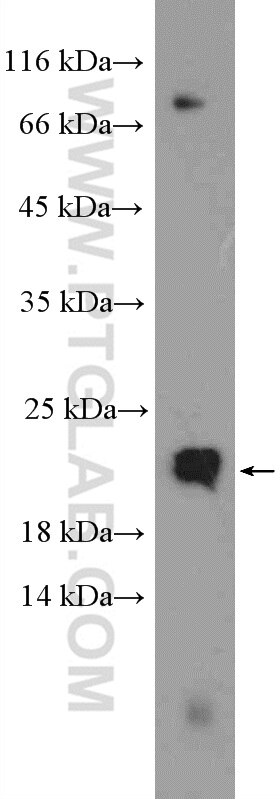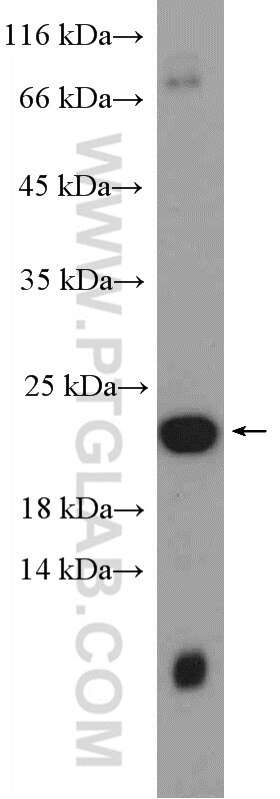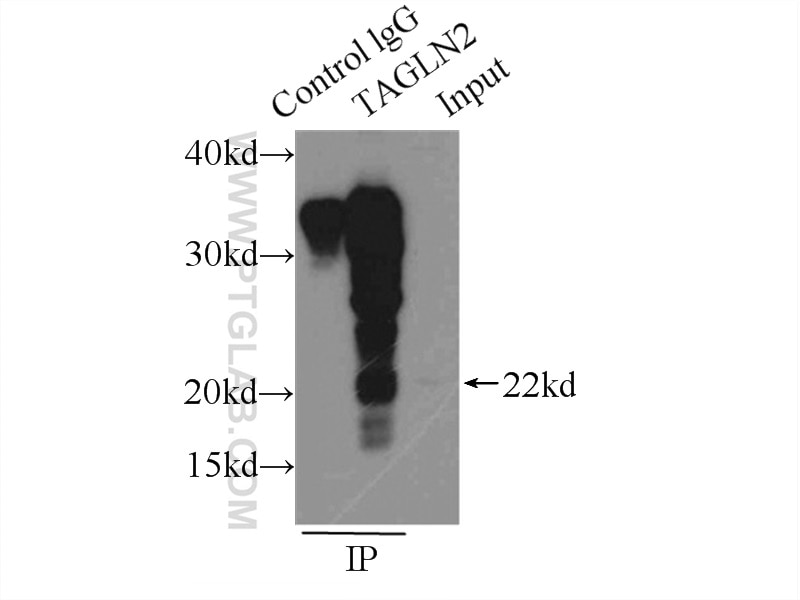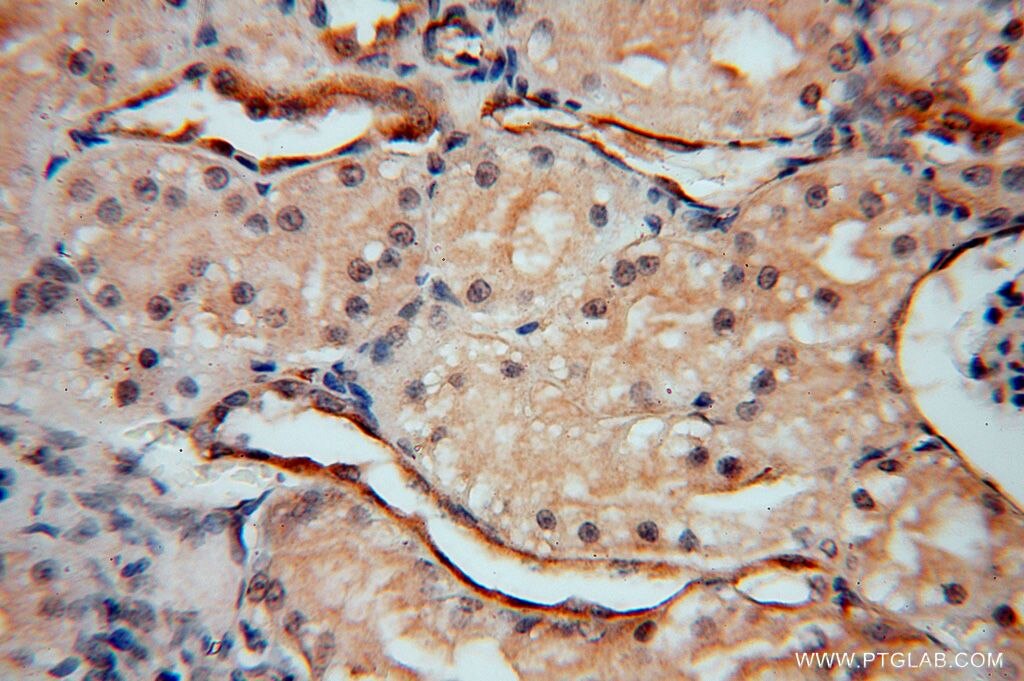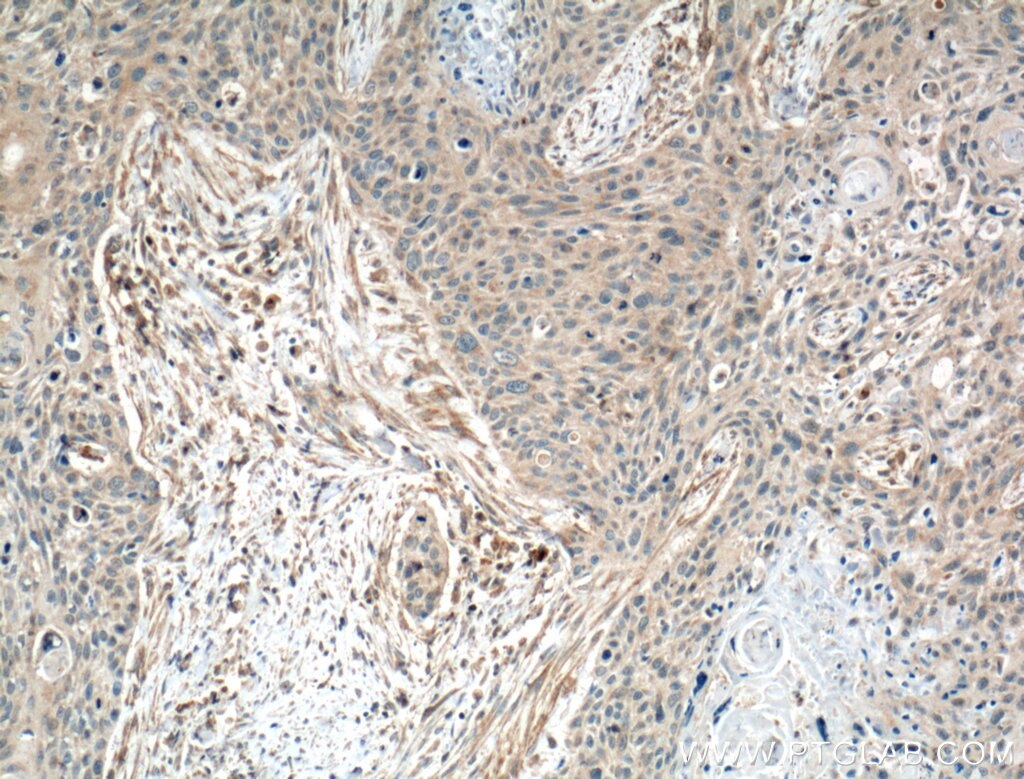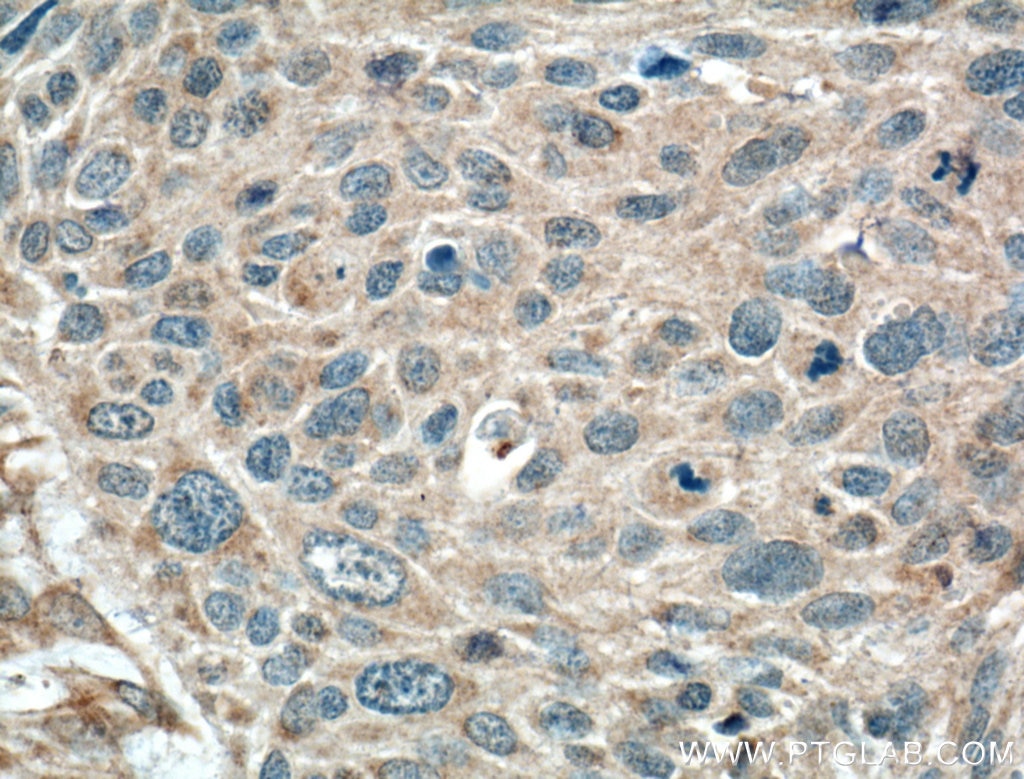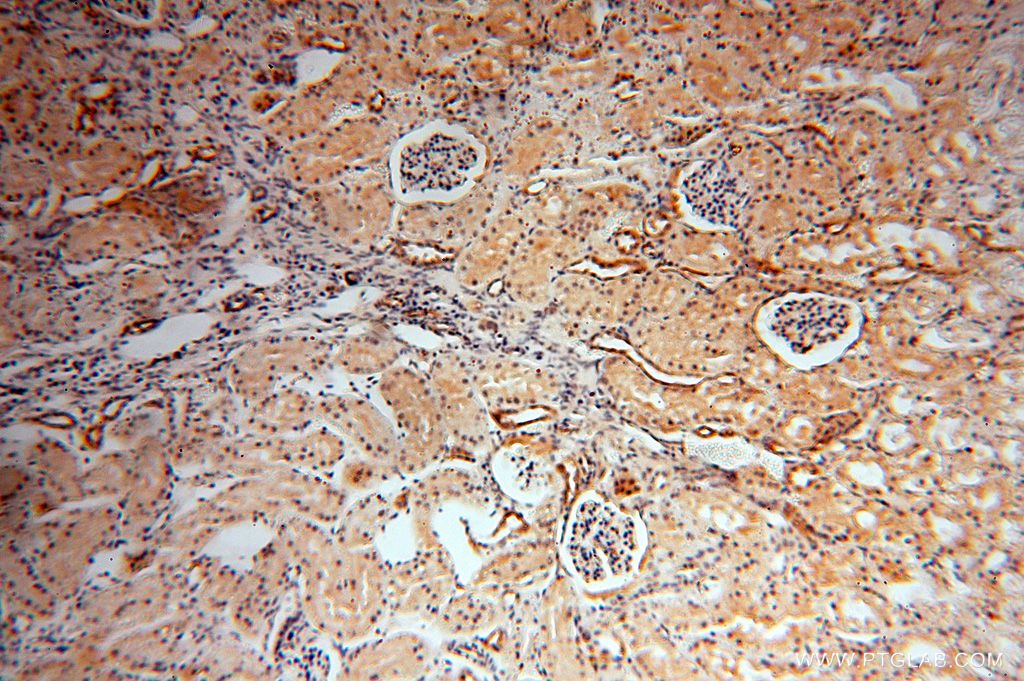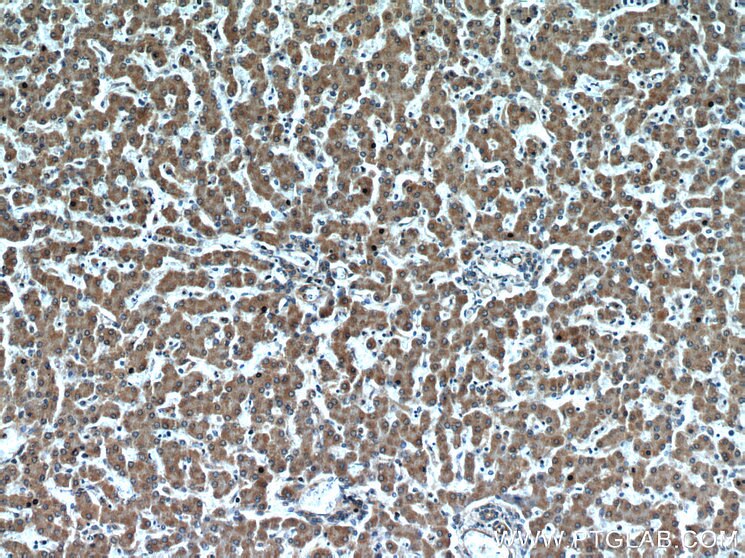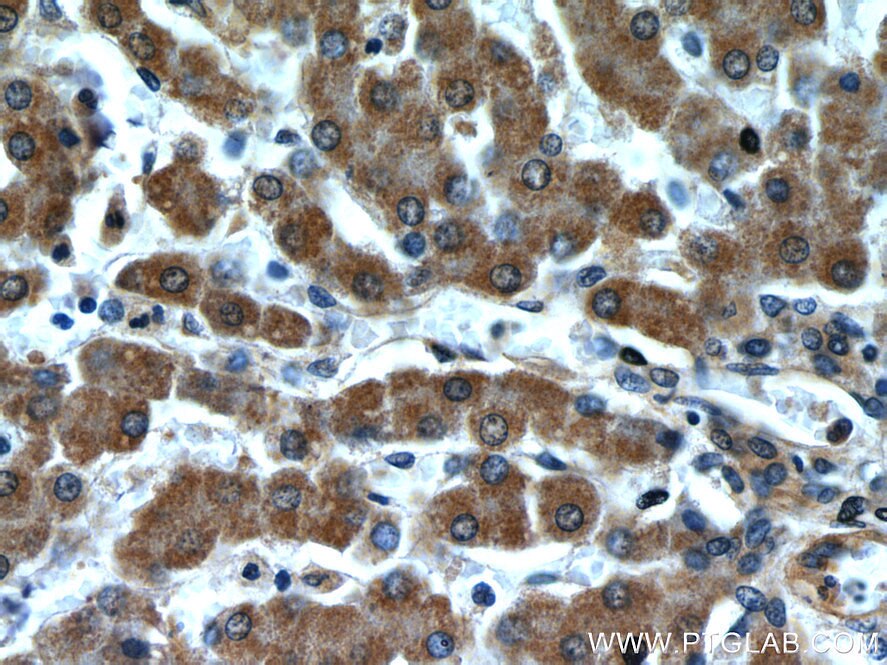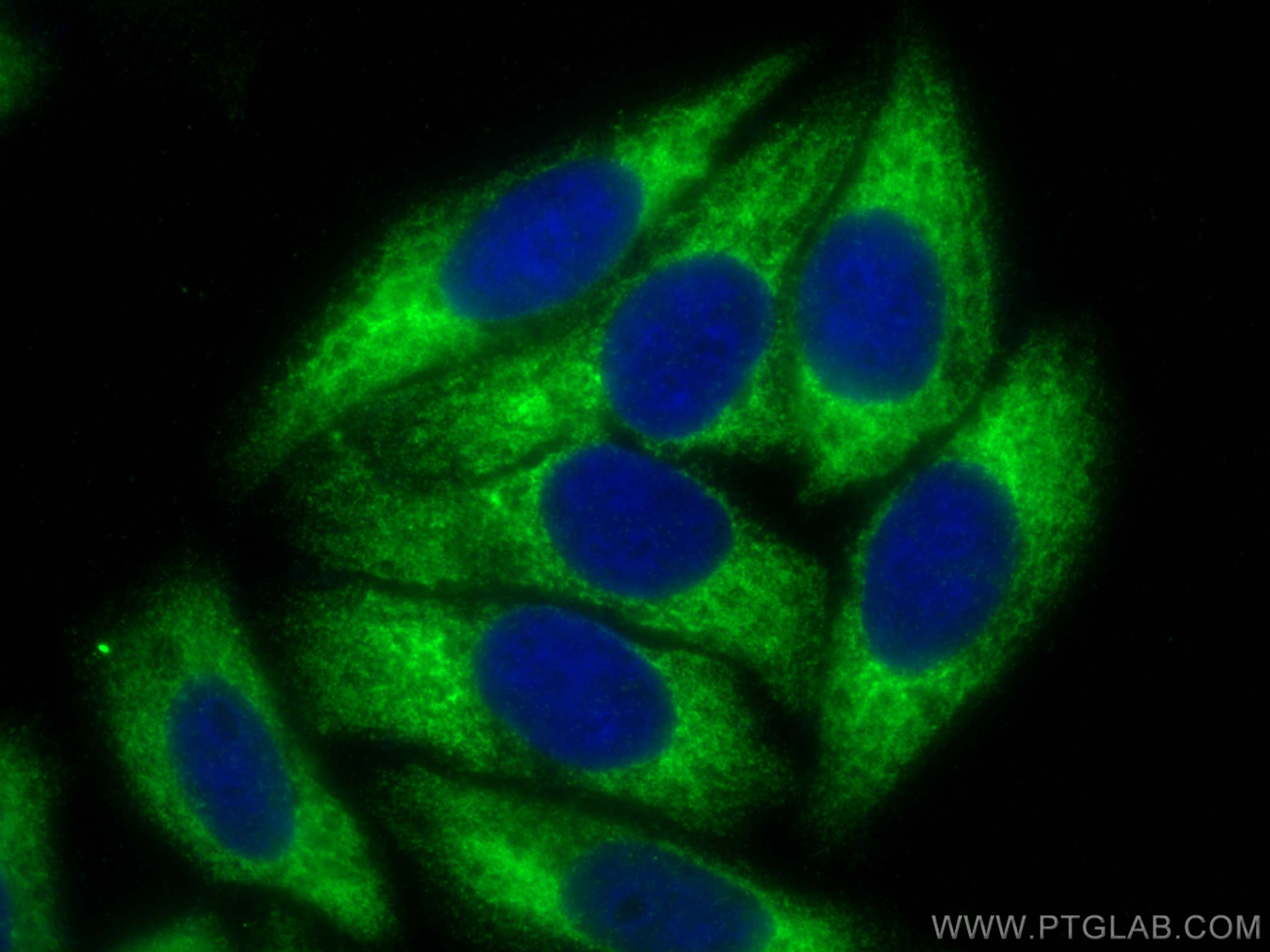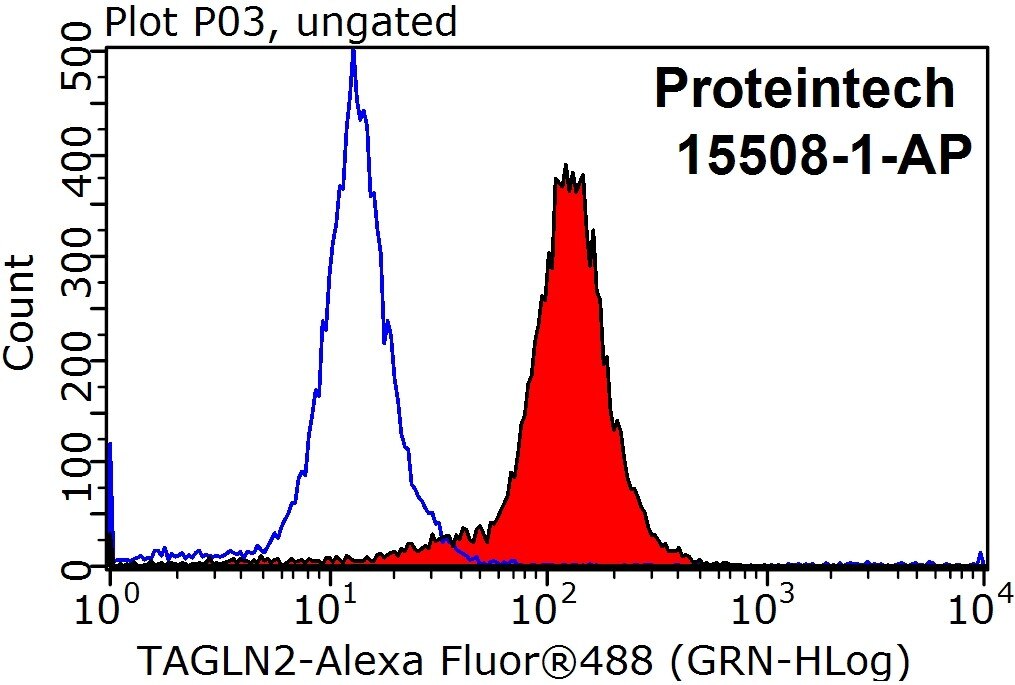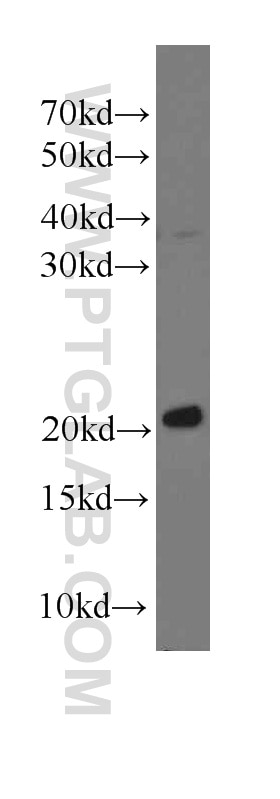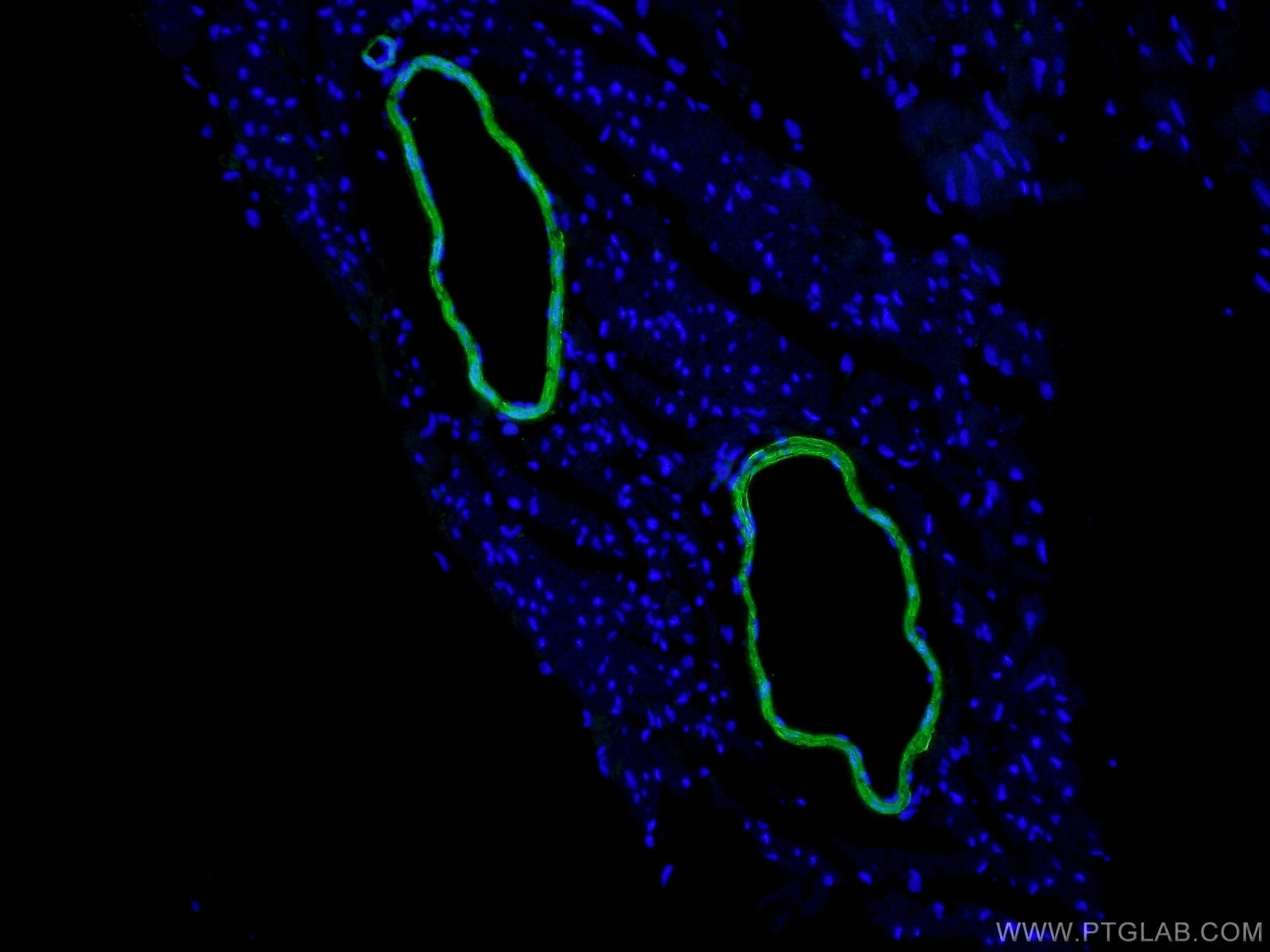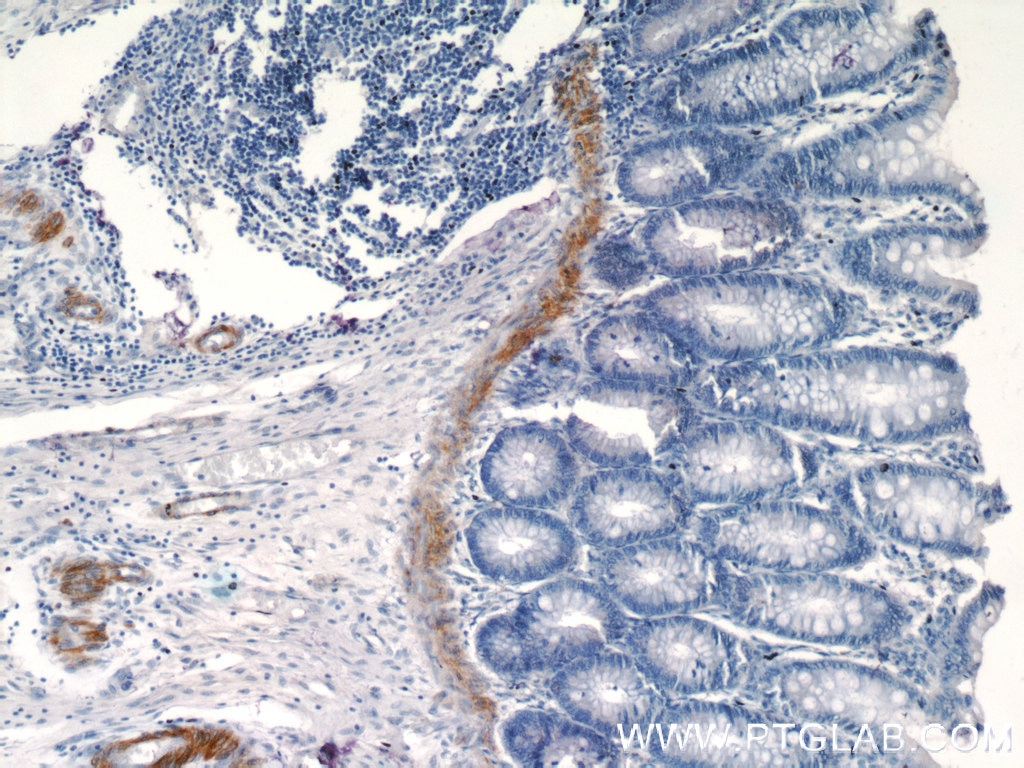- Featured Product
- KD/KO Validated
Transgelin-2-specific Polyklonaler Antikörper
Transgelin-2-specific Polyklonal Antikörper für FC, IF, IHC, IP, WB, ELISA
Wirt / Isotyp
Kaninchen / IgG
Getestete Reaktivität
human
Anwendung
WB, IP, IHC, IF, FC, ELISA
Konjugation
Unkonjugiert
Kat-Nr. : 15508-1-AP
Synonyme
Galerie der Validierungsdaten
Geprüfte Anwendungen
| Erfolgreiche Detektion in WB | HeLa-Zellen, HEK-293-Zellen |
| Erfolgreiche IP | L02-Zellen |
| Erfolgreiche Detektion in IHC | humanes Ösophaguskarzinomgewebe, humanes Lebergewebe, humanes Nierengewebe Hinweis: Antigendemaskierung mit TE-Puffer pH 9,0 empfohlen. (*) Wahlweise kann die Antigendemaskierung auch mit Citratpuffer pH 6,0 erfolgen. |
| Erfolgreiche Detektion in IF | HepG2-Zellen |
| Erfolgreiche Detektion in FC | HepG2-Zellen |
Empfohlene Verdünnung
| Anwendung | Verdünnung |
|---|---|
| Western Blot (WB) | WB : 1:500-1:1000 |
| Immunpräzipitation (IP) | IP : 0.5-4.0 ug for 1.0-3.0 mg of total protein lysate |
| Immunhistochemie (IHC) | IHC : 1:50-1:500 |
| Immunfluoreszenz (IF) | IF : 1:200-1:800 |
| Durchflusszytometrie (FC) | FC : 0.20 ug per 10^6 cells in a 100 µl suspension |
| It is recommended that this reagent should be titrated in each testing system to obtain optimal results. | |
| Sample-dependent, check data in validation data gallery | |
Veröffentlichte Anwendungen
| KD/KO | See 2 publications below |
| WB | See 6 publications below |
| IHC | See 1 publications below |
| IF | See 1 publications below |
| IP | See 1 publications below |
Produktinformation
15508-1-AP bindet in WB, IP, IHC, IF, FC, ELISA Transgelin-2-specific und zeigt Reaktivität mit human
| Getestete Reaktivität | human |
| In Publikationen genannte Reaktivität | human |
| Wirt / Isotyp | Kaninchen / IgG |
| Klonalität | Polyklonal |
| Typ | Antikörper |
| Immunogen | Peptid |
| Vollständiger Name | transgelin 2 |
| Berechnetes Molekulargewicht | 22 kDa |
| Beobachtetes Molekulargewicht | 22 kDa |
| GenBank-Zugangsnummer | NM_003564 |
| Gene symbol | TAGLN2 |
| Gene ID (NCBI) | 8407 |
| Konjugation | Unkonjugiert |
| Form | Liquid |
| Reinigungsmethode | Antigen-Affinitätsreinigung |
| Lagerungspuffer | PBS mit 0.02% Natriumazid und 50% Glycerin pH 7.3. |
| Lagerungsbedingungen | Bei -20°C lagern. Nach dem Versand ein Jahr lang stabil Aliquotieren ist bei -20oC Lagerung nicht notwendig. 20ul Größen enthalten 0,1% BSA. |
Hintergrundinformationen
The transgelin family is a group of proteins that belong to 22 kDa actin-related corpnin superfamily. Of all three isoforms, transgelin 1 is the best characterized. Transgelin 1, also known as SM22 alpha, is a specific marker for differentiated smooth muscle cells. Transgelin 2, also known as SM22 beta, is expressed by both smooth muscle and non-smooth muscle cells in a temporally and spatially regulated pattern. Trangenlin 3, also known as NP25, is only found in highly differentiated neuronal cells. This antibody can bind transgelin 2 specifically, but not trangelin 1 or 3.
Protokolle
| Produktspezifische Protokolle | |
|---|---|
| WB protocol for Transgelin-2-specific antibody 15508-1-AP | Protokoll herunterladen |
| IHC protocol for Transgelin-2-specific antibody 15508-1-AP | Protokoll herunterladen |
| IF protocol for Transgelin-2-specific antibody 15508-1-AP | Protokoll herunterladen |
| IP protocol for Transgelin-2-specific antibody 15508-1-AP | Protokoll herunterladen |
| Standard-Protokolle | |
|---|---|
| Klicken Sie hier, um unsere Standardprotokolle anzuzeigen |
Publikationen
| Species | Application | Title |
|---|---|---|
Front Oncol An Essential NRP1-Mediated Role for Tagln2 in Gastric Cancer Angiogenesis.
| ||
J Gastroenterol Hepatol The tumor-suppressive function of miR-1 by targeting LASP1 and TAGLN2 in esophageal squamous cell carcinoma. | ||
Cancer Cell Int MiR-613 inhibits the proliferation, migration, and invasion of papillary thyroid carcinoma cells by directly targeting TAGLN2. | ||
PLoS One Transgelin 2 participates in lovastatin-induced anti-angiogenic effects in endothelial cells through a phosphorylated myosin light chain-related mechanism.
| ||
Biochem Biophys Res Commun Transgelin-2 contributes to proliferation and progression of hepatocellular carcinoma via regulating Annexin A2. | ||
Molecules MOBT Alleviates Pulmonary Fibrosis through an lncITPF-hnRNP-l-Complex-Mediated Signaling Pathway |
